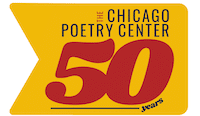Benvenuti, dear readers, to a very special blog series! Over the coming weeks, we will be bringing you poems composed by some brilliant student poets in Italy. Their teacher, Carla Maestrini, writes:
“The poems have been written by the students of G.B. Vico Junior High school (Istituto Comprensivo Grosseto 5), located in Grosseto Tuscany, Italy. All the students are English foreign language learners and are 12 -13 years old. We started working on poetry during the lockdown period when the kids had to give up several open air and socializing activities.
At the beginning, poetry was just a way to help them to express and share their feelings. The students were given a topic, that they developed expressing their moods and emotions spontaneously. Some of the topics were nature, myself, and the war. Then together with the teacher they worked on the writing process, removing, where possible, the connective links between sentences and transforming their thoughts into poetic images. The end of the poem is usually the result of personal reflection and it leads to the inner soul of the writer.”
This first dispatch highlights poems in which the writers explore a sense of clarity – or, in Italian, la chiarezza. The word “clarity” means clearness, transparency, certainty, and knowability. We use it to indicate something that is easy to see, hear, or understand. To gain clarity is to feel a new sense of understanding for how different ideas or truths fit together.
In these poems, the writers show how the world reveals truth to them – sometimes joyful and sweet, sometimes complicated and difficult to accept. In “The Forest,” Riccardo’s attention is drawn first by the “faint sunlight,” then into the “loud silence” as it exposes the beat of the speaker’s heart in harmony with birdsong. Similarly, in “The Lighthouse,” Gioele points out how the lighthouse shining onto the shoreline reveals “imperfections left behind.” Ginevra explores the contradictions of trying to understand oneself clearly, while Klevis emphasizes that sometimes clarity can be uncomfortable, even painful: “My heart is crying, / because I see what I don’t want to see.” Yet the act of seeing clearly, of witnessing, can be powerful. As Sofia shows in “The Butterfly,” seeing allows us to “learn how to dream.” These writers use metaphors and images of light and dark, sound and silence, to bring forward the many emotions that accompany clarity.
As the world continues to struggle with the pandemic, war, climate change, and inequality, it is important that we seek clarity as we attempt to connect across difference, understand each other, and solve problems together. We hope you enjoy connecting with these young poets through their words!
The Forest
Riccardo C.
The faint sunlight
enlightens the wet leaves of the big oaks.
I can hear the beat of my heart,
I walk on my toes
in the loud silence.
And in the background ,
birds are singing and dancing among the old branches.
The Lighthouse
Gioele L.
The waves break
on the desolate shores.
The water is illuminated
by the reflection
of the tall lighthouse
that watches over the banks
and reveals the imperfections left behind
by the blurred vision.
I Am Myself
Ginevra C.
I am noone. I am someone. I am myself.
I wonder if I will ever be free.
I hear noises deep inside my mind.
I see what people cannot see.
I want to be stronger than everyone else.
I am noone. I am someone. I am myself.
No War!
Klevis D.
We do not want the war.
Peace,
peace we want.
My heart is crying,
because I see what I don’t want to see.
The people in Ukraine are escaping
because they want to survive.
People die, to defend their cities.
We do not want the war.
Peace,
peace we want.
The Butterfly
Sofia F.
A butterfly is flying,
a child is playing
but it is only when they look at each other,
that they learn how to dream.

